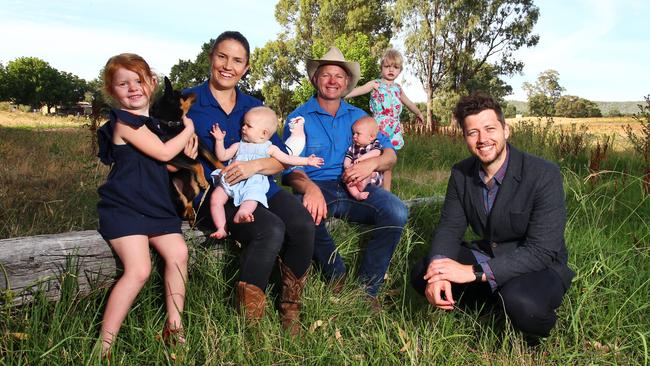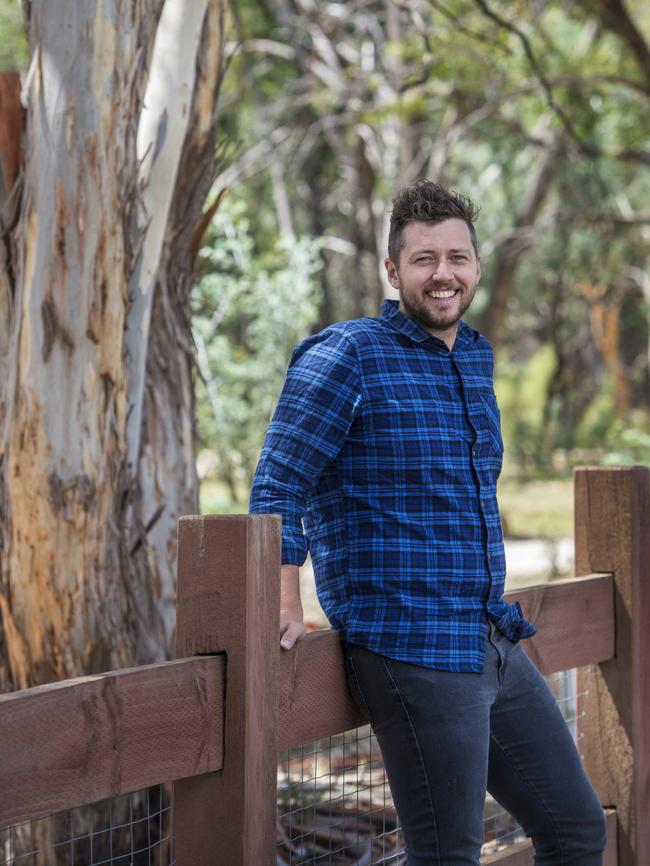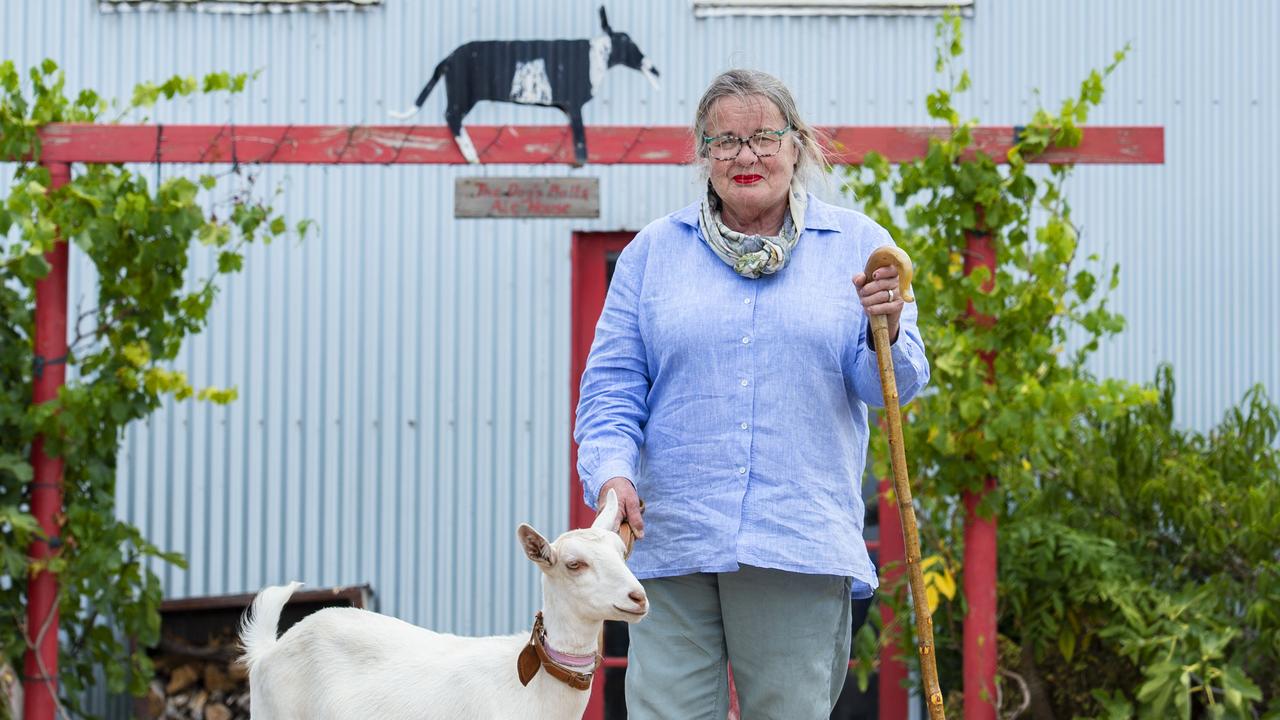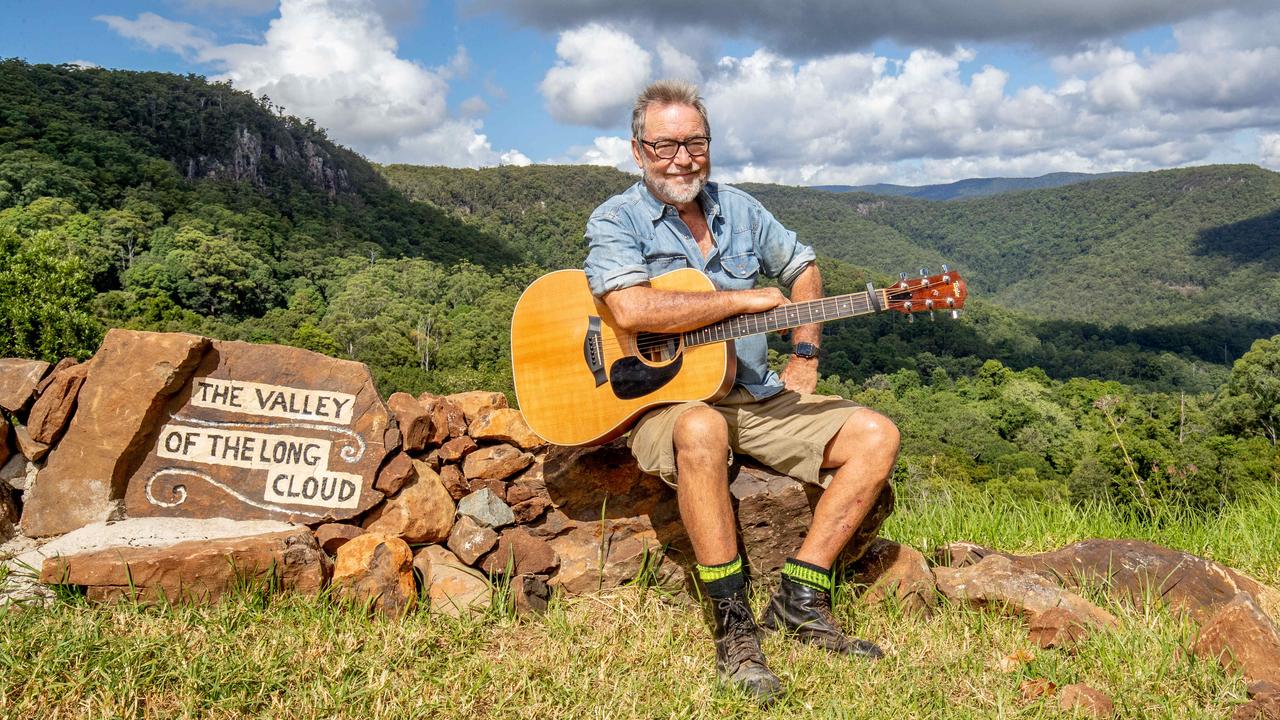Cultivate Farms is matching aspiring farmers with those retiring
SAM Marwood has an innovative approach to making the world a better place, writes SARAH HUDSON.

SAM Marwood is an ideas man.
Just for fun, he’ll think of a topic, imagine problems and design solutions.
“I keep a list on my computer, like ways to save people time, or how to help the homeless,” the 35-year-old — who grew up on a dairy farm north of Bendigo — says.
Sam’s biggest idea has been Cultivate Farms, which he started with Tim and Tegan Hicks in 2016 aiming to “matchmake” aspiring young farmers with retiring farmers and investors.
Sam — who lives in Kyneton after moving from Albury — wanted to be a farmer from the age of eight.
“But when I told my dad, he laughed at me and said they were going to have to sell the farm to retire,” he says.
“It’s a problem for so many people. Unless you’re filthy rich or inherit a farm, you’re never going to be a farmer.”
Sam’s solution was to connect aspiring farmers who couldn’t afford to buy land with farmers who wanted to retire from the day-to-day work but retain at least partial ownership.
Investors are sourced to take a stake in the farm, thus providing the cashflow to make it happen.
This month, Cultivate Farms made its first official match when pig farmers Mark and Claire Coates were helped by an investor to expand their Freeland Pork farm, moving from a leased property in Tatura to their new farm in Kyabram.
Claire says she is extremely grateful for the opportunity to fulfil their farming dream, given that commodity prices don’t correlate to the price of land.
“The returns farms generate through commodities are not enough to cover associated costs and expenses without supplemented income, very low mortgage or loan repayments, or a niche market,” Claire says.
“Even if you have enough cash for a deposit and security by way of your own capital, you would need to operate on a fairly big scale, which exposes high risk, just to get started in a farming enterprise.
“The concept of Cultivate Farms means aspiring farmers with operational farming expertise and a business mindset — or the willingness to learn both — now have the opportunity to get on to their own farm and succeed.
“It also helps farmers and property owners transition into retirement and see their legacy continue or evolve to meet a new age of regenerative farming.
“It has helped me to bridge the gap between having a great business and not enough capital, to secure a farm to grow the business.”
Sam says the group now has 50 retired farmers signed on to Cultivate Farms looking to match with aspiring farmers, but
added there is no one-size-fits-all approach.
“The No. 1 goal is farm ownership for the next generation of farmers, using whatever formula works,” he says.
“Ultimately we would like to see any farmer thinking of retiring to come to us first and look at their options.”
Cultivate Farms has sprouted
several offshoots from its
original formula and Sam is working on equity crowd-funding
campaigns (as opposed to reward crowd-funding, where supporters are given a box of sausages or one-off benefits).
In March, in the first of what Sam hopes will be an ongoing trend, a Wagga Wagga retiring farmer has worked with Cultivate Farms to crowd-fund 49 per cent of her farm.
“People want to invest in farms and there’s money sitting there that we can tap into,” he says.
“This model could open up millions of investment dollars that was previously untapped.”

Sam has also created a template for would-be farmers to take to investors to secure funding, launching the “world’s first farm pitching marketplace”. He is also hoping to launch a “community Shark Tank”, taking its lead from the Channel 10 TV show where businesses pitch concepts to would-be investors.
“The idea is that we could get people to pitch their farm ideas
in a town hall and retiring
farmers then accept the best
pitch,” he says.
“Instead of communities complaining that young people
are moving away and no one lives there, this could reverse the trend.”
Sam is nothing if not an ideas man; while working as an environmental scientist in the Victorian Government — overseeing such issues as threatened species, waterway health and bushfire management — he came up with Edge Pledge, which started in 2016.
“I was working in government and was thinking, ‘Why don’t we get more private investment in biodiversity? Why don’t we have a Movember (charity fund-raising event) for the environment?’
The charity sees participants sponsored to take on a challenge — for example, skydiving, shaving their head or writing a novel — and all funds raised (a total of $60,000 so far) go towards 11 environmental charities.
But possibly his biggest idea so far has only just been launched.
Called Odonata, it is a project that he is currently working on three days a week with an “impact investor”, with the aim being to fund farms that have a strong environmental focus and provide returns for investors.
Ultimately, Sam says, that’s what drives his work: leaving the world a better place, especially by encouraging farmers to improve carbon in soil, create biodiverse wildlife corridors and implement sustainable land management practices.
“I’m excited for the future. The planet has an ability to rebound, we’ve just got to give it help and convince people to look after it,” he says.
“It’s only in the past 50 to 100 years that we’ve been getting stuck into it. It will be the next 50 years when the solutions are found and implemented to get the balance right.”
Clearly, Sam enjoys putting his innovative approach to good use. As he puts it: “I love coming up with useful solutions so I can be a part of change in the world.”


